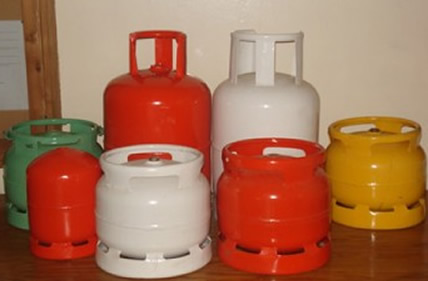The Federal Government of Nigeria has announced a significant policy change regarding the export of Liquefied Petroleum Gas (LPG), commonly referred to as cooking gas, advancing a strategy to prioritize domestic supply ahead of growing consumer prices. This directive, communicated by the Minister of State for Petroleum Resources (Gas), Ekperikpe Ekpo, is set to take effect on November 1, 2024. It stems from increasing concerns and hardships faced by consumers due to the soaring price of cooking gas, which has nearly doubled within a span of 16 months, escalating from approximately N700 per kilogram in June 2023 to N1,500 in October 2024. This drastic rise has prompted the government to seek immediate and effective measures to alleviate the financial burden on Nigerian households.
In addressing the alarming rise in gas prices, Minister Ekpo convened a high-level meeting with key stakeholders in the LPG sector to devise strategies for stabilizing costs. The high-level committee established in November 2023, with the Chief Executive of the Nigerian Midstream and Downstream Petroleum Regulatory Authority (NMDPRA), Mr. Farouk Ahmed, was tasked with scrutinizing the current pricing mechanisms and proposing viable solutions. Despite the earlier formation of this committee, price fluctuations persisted, with recent averages soaring to N1,500 from an earlier range of N1,100 to N1,250 per kilogram. This ongoing volatility has rendered previous interim measures inefficient, compelling the government to take more decisive steps.
The new directive from the minister mandates that the Nigerian National Petroleum Corporation Limited (NNPCL) and local LPG producers cease exporting gas produced within Nigeria and instead import equivalent volumes at cost-reflective pricing. This step aims to recalibrate the domestic supply landscape, ensuring that local production meets the rising demand without being undermined by external market influences. This directive also emphasizes a shift in the pricing framework, where the NMDPRA is instructed to collaborate with stakeholders over the next 90 days to establish an LPG pricing model that accurately reflects production costs in Nigeria rather than relying on fluctuating international market rates.
In addition to immediate measures, the government has outlined a long-term strategy intended to stabilize the gas market. This comprehensive approach involves the development of facilities dedicated to blending, storing, and delivering LPG within a twelve-month timeframe, ultimately resulting in a halt to exports until the nation’s domestic market demonstrates sufficient production levels and price stability. By focusing on creating a sustainable and substantive domestic LPG infrastructure, Nigerian authorities aim to reduce dependence on imported gas and cushion consumers from price shocks driven by global market variability.
Minister Ekpo has publicly acknowledged the deep concern resulting from the continuous rise in LPG prices, asserting that the government’s efforts are aimed at ensuring affordable access to this crucial resource for the Nigerian populace. Within his remarks, the minister indicated a commitment to rectify existing challenges surrounding LPG availability and pricing, which he believes will eventually lead to improved living conditions for ordinary citizens. As Nigeria is endowed with rich natural gas resources, the minister’s directive highlights a strategic pivot to harness these local capabilities effectively, enhancing energy sustainability while easing the current financial strain on households.
In conclusion, the policy change to halt the export of locally produced LPG reflects the Nigerian government’s urgent response to the skyrocketing prices affecting domestic consumers. With the implementation date set for November 1, 2024, and the establishment of a pricing framework aimed at aligning costs with local production realities, there is hope for improved stability in the cooking gas market. Minister Ekpo’s approach indicates a concerted effort to not only address short-term price issues but also to forge a resilient domestic LPG industry, ultimately benefiting consumers while leveraging Nigeria’s natural gas wealth for greater economic stability.














